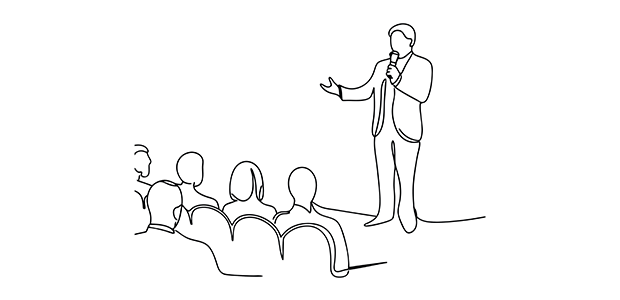
EASI Final showcased groundbreaking innovations
The Worshipful Company of Entrepreneurs hosted the Entrepreneurs’ Award in Social Innovation (EASI) Final at The Skyline Rooms in London on 27th May.
Launched in 2022, EASI awards a £10,000 grant to the winner, supported with a significant package of business support gifted by freemen and friends. The support package, which is also provided to each EASI Finalist, includes a twelve-month mentorship, EASI Masterclasses delivered by topic experts. In addition, they gain invaluable access to a world-leading entrepreneur community committed to supporting exceptional early-stage innovators, tackling societal challenges through purpose-led initiatives.
Judy Hadden, Past Master and EASI Lead, opened the evening by welcoming attendees, introducing the judging panel, and guiding each finalist through their presentations.
The first finalist to present was Yasmine Abdu, who introduced CarbonTrac, an AI-driven platform designed to turn supermarket loyalty cards into tools for climate action. Abdu highlighted how the platform supports shoppers in making climate-conscious decisions that could also lead to healthier lifestyles.
Next was Freddy Sarathchandra, Co-Founder and CEO of Enstic. Sarathchandra delivered a compelling overview of his acoustic sensing technology for insect detection. His innovation has the potential to significantly impact sustainable agriculture and environmental management.
Eden Harrison, Co-Founder and CEO of Carbon Cell, followed with a presentation that impressed both the judges and the audience. Carbon Cell’s foam alternative, made from biochar, offers a compostable and sustainable replacement for traditional polymer-based foams. Lightweight, strong, and thermally insulating, the material naturally decomposes within a month.
Damla Khan, Co-Founder of Tynkerbyte, took to the stage next. She introduced what she described as the world’s first entrepreneurial learning ecosystem for teenagers. Tynkerbyte seeks to make entrepreneurial education accessible from a younger age.
The final pitch came from Will Hicks, Co-Founder and CEO of Air Aware Labs, who presented AirTrack, an app designed to help users manage their exposure to air pollution. Hicks, who has asthma himself, explained how the app provides users with low-pollution routes and optimal outdoor activity times, aiming to improve health outcomes.
Following each presentation, the judging panel posed questions before opening the floor to the audience for further discussion. Attendees then cast their votes via phone while the judges convened to deliberate.
While votes were counted, the audience was introduced to the Worshipful Company of Needlemakers and its new award in Advanced Needle Technology. With a long history of supporting both the making and use of needles, this new award aims to support an early-stage project developing medical or bioscience products, technologies or services involving the innovative use of needles or needle replacements for the benefit of patients and wider society.
The award went to Dr Emily Mills, CEO and Co-Founder of Cascade MedTech. Dr Mills described her company’s novel medical procedure for improving the fitting of stomach drains. The award would support her next steps, including securing a patent for her innovation.
The Master of the Needlemakers, Dr Sue Sumners, said: “We are delighted to make this award working in conjunction with the Worshipful Company of Entrepreneurs, whose Entrepreneurs’ Award in Social Innovation (EASI) is a successful and established programme.
“The award winner will benefit from a package of support provided by the Needlemakers in conjunction with the Entrepreneurs and its charitable trust, comprising a programme of workshops and mentoring together with access to valuable networks, and a one-off prize of £7,500 payable by the Needlemakers to the applicant organisation.”
As the evening drew to a close, the results were announced. Carbon Cell, founded by Eden Harrison, was named the winner. Carbon Cell stood out as a strong and deserving winner due to its clear potential to disrupt traditional building materials with a genuinely sustainable alternative. By developing a foam made from biochar that is thermally insulating, lightweight, strong, and fully compostable within a month, the company addressed a critical need for environmentally responsible materials in construction and design. The product combined performance with circularity, offering a solution that not only reduces environmental impact but also supports broader efforts to decarbonise the built environment. Harrison’s compelling presentation and deep understanding of the market further reinforced Carbon Cell’s viability as both a business and a force for positive change.
For more startup news, check out the other articles on the website, and subscribe to the magazine for free. Listen to The Cereal Entrepreneur podcast for more interviews with entrepreneurs and big-hitters in the startup ecosystem.

